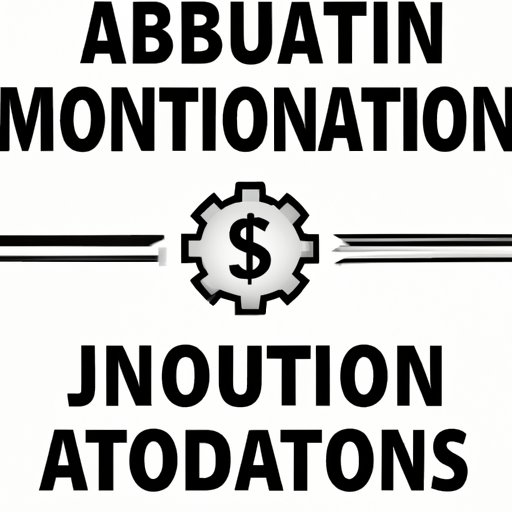Introduction
Automation is defined as the use of various control systems for operating equipment such as machinery, processes in factories, boilers, and heat treating ovens, with minimal or reduced human intervention. Automation has become increasingly prevalent in many industries as businesses seek to increase efficiency and reduce costs. This article will explore how automation affects jobs from multiple perspectives, including job security, wages and benefits, job creation, and the workforce.
The Pros and Cons of Automation for Workers
Automation has both positive and negative implications for workers. On the one hand, it can result in increased efficiency and improved accuracy due to lower error rates. Automation can also reduce labor costs, allowing companies to save money and remain competitive. However, automation can also lead to displacement of jobs, as machines take over tasks that were previously performed by humans.

Examining the Effects of Automation on Wages and Benefits
Automation can have a significant impact on wages and benefits. According to research conducted by McKinsey Global Institute, “the introduction of automation technologies could lead to a rise in wage inequality as some workers benefit from higher wages while others are displaced.” Additionally, automation can lead to a reduction in benefits for workers, as companies may no longer need to offer certain benefits such as health insurance if they are relying on machines to do the work.

Assessing the Impact of Automation on Job Creation
Automation can also have an impact on job creation. Automation can be seen as a substitute for human labor, meaning that fewer employees are needed to perform the same tasks. This can have a negative effect on job creation, as businesses may not need to hire new employees to replace those whose jobs have been automated.

Investigating the Impact of Automation on the Workforce
Automation can also have an impact on the skillset requirements of the workforce. As automation takes over certain tasks, workers may need to develop new skills in order to remain competitive. In addition, automation can have an impact on employee morale, as workers may feel less valued if their jobs are being taken over by machines.
Conclusion
In conclusion, automation can have both positive and negative impacts on jobs. It can lead to increased efficiency and improved accuracy, as well as reduced costs. However, it can also lead to displacement of jobs, increased wage inequality, and a reduction in benefits. Additionally, automation can have a negative impact on job creation and can require workers to develop new skills in order to remain competitive. Companies should be aware of the potential impacts of automation on jobs and make efforts to mitigate any negative effects.
(Note: Is this article not meeting your expectations? Do you have knowledge or insights to share? Unlock new opportunities and expand your reach by joining our authors team. Click Registration to join us and share your expertise with our readers.)
